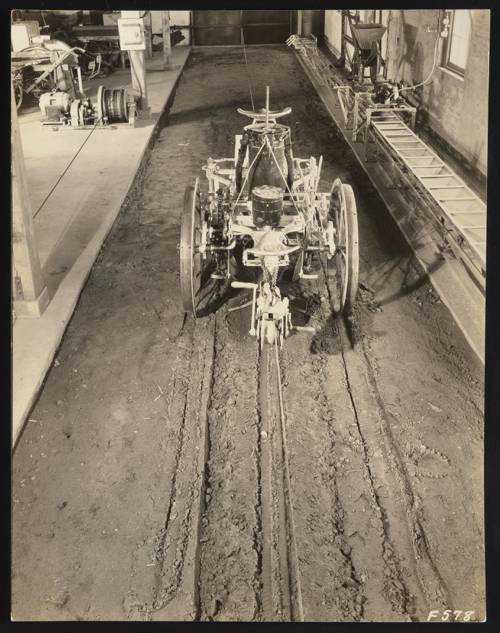
FAQ About Indoor Plant Soil Rejuvenation

What is indoor plant soil rejuvenation?
Indoor plant soil rejuvenation refers to the process of restoring nutrients and improving the structure of the soil used in houseplants. Over time, the soil in pots can become compacted and depleted of essential nutrients due to plant absorption and watering, which can lead to poor plant health. Rejuvenation techniques include adding compost, natural amendments, and mulching to enhance nutrient availability and aeration.

How often should soil rejuvenation be done for indoor plants?
The frequency of soil rejuvenation for indoor plants depends on several factors, including the type of plant, the size of the pot, and the existing soil quality. Generally, it's recommended to rejuvenate the soil once a year. However, for heavy feeders like flowering plants, it may be necessary to amend the soil more frequently, around every six months.

What natural amendments can be used to rejuvenate indoor plant soil?
Several natural amendments can be used to rejuvenate indoor plant soil, including:
Compost: Adds organic matter and nutrients.
Worm castings: Rich in nutrients and beneficial microbes.
Peat moss: Improves soil structure and moisture retention.
Perlite or vermiculite: Enhances soil aeration and drainage.

Can compost be used to rejuvenate indoor plant soil?
Yes, compost is excellent for rejuvenating indoor plant soil. It enhances nutrient content by adding organic matter and beneficial microorganisms. Additionally, compost improves soil structure, which can help with water retention and aeration. It's advisable to mix compost with existing soil or use it as a top dressing.

What are the signs that indoor plant soil needs rejuvenation?
Signs that indoor plant soil may need rejuvenation include:
- Stunted growth or yellowing of leaves.
- Soil pulling away from the edges of the pot.
- Poor water retention, causing rapid drying.
- Accumulation of salt or mineral deposits on the soil surface.
- Reduced flowering or fruiting in plants.

How does mulching benefit indoor plant soil rejuvenation?
Mulching benefits indoor plant soil rejuvenation by reducing evaporative water loss, suppressing weed growth, and maintaining a moderate soil temperature. Organic mulches, like shredded bark or leaves, decompose over time, adding nutrients to the soil and improving its structure.

Is changing soil necessary for soil rejuvenation in indoor plants?
Changing soil is not always necessary for soil rejuvenation. Often, adding amendments like compost or organic fertilizers can effectively restore nutrients. However, if the soil is heavily compacted or infested with pests, replacing part of the soil might be the best option.

What role do earthworms play in indoor plant soil rejuvenation?
Earthworms can be beneficial for indoor plant soil rejuvenation as they enhance soil aeration and drainage by tunneling through it. Their castings are rich in nutrients and beneficial bacteria, which improve the fertility and structure of the soil. However, managing earthworms indoors can be challenging, so alternative castings like worm tea might be preferable.

How can poor drainage affect soil health in indoor plants?
Poor drainage can lead to waterlogging, which deprives plant roots of necessary oxygen and can promote root rot and fungal diseases. Over time, this can deplete soil nutrients and compact the soil further. Using amendments like perlite can improve drainage and help maintain soil health.

Are chemical fertilizers necessary for soil rejuvenation?
Chemical fertilizers are not necessary for soil rejuvenation if you use natural amendments, which provide a gradual release of nutrients and improve soil health. However, chemical fertilizers can offer a quick nutrient boost for plants in urgent need. It's essential to use them cautiously to avoid nutrient burn and soil degradation.

How can I naturally increase nitrogen levels in indoor plant soil?
To naturally increase nitrogen levels in indoor plant soil, you can use:
Compost or well-rotted manure: These contain organic nitrogen.
Leguminous cover crops: They fix atmospheric nitrogen into the soil.
Worm castings: Another great source of nitrogen and other nutrients.

What is the role of aeration in soil rejuvenation?
Aeration plays a crucial role in soil rejuvenation by promoting root growth and preventing compaction. Well-aerated soil allows water and air to reach plant roots efficiently. Methods to improve aeration include adding perlite and vermiculite, using coarse sand, or gently tilling the soil surface.

Can I use coffee grounds to rejuvenate indoor plant soil?
Coffee grounds can be used to rejuvenate indoor plant soil as they add organic matter and can improve soil structure and drainage. They also provide a small amount of nitrogen. However, coffee grounds should be used sparingly, as they can alter soil pH and may contribute to moisture retention if not mixed properly.

What are the risks of not rejuvenating indoor plant soil?
If indoor plant soil is not rejuvenated, plants may experience nutrient deficiencies, leading to poor growth and vitality. Over time, compacted and depleted soil can cause root stress, reduced flowering, and increased susceptibility to pests and diseases. Revitalizing the soil helps maintain healthy, thriving plants.

How can coconut coir be used in soil rejuvenation for indoor plants?
Coconut coir is an excellent medium for rejuvenating indoor plant soil as it enhances moisture retention and improves soil aeration. It's a sustainable alternative to peat moss and can be mixed with existing soil to lighten heavy soil, providing a better environment for root growth.

Can over-watering affect the need for soil rejuvenation?
Yes, over-watering can accelerate the need for soil rejuvenation as it can lead to soil compaction and nutrient leaching. This results in reduced oxygen availability to roots and promotes the growth of harmful bacteria and fungi. Proper watering techniques are crucial to maintaining healthy soil conditions.

What is vermiculite and how does it aid soil rejuvenation?
Vermiculite is a mineral used to improve soil aeration and moisture retention. When added to soil, it expands, creating air pockets that prevent compaction and improve water absorption and retention. This makes vermiculite an effective component in soil rejuvenation, especially for plants that prefer moist conditions.

Can houseplants benefit from soil rejuvenation in winter months?
Yes, houseplants can benefit from soil rejuvenation during the winter months. While their growth slows down, maintaining healthy soil ensures that plants have adequate nutrients when they resume active growth in spring. Additionally, controlled additions like light composting or liquid seaweed can provide a nutrient base without forcing growth during dormancy.

How does a soil pH test help in soil rejuvenation for indoor plants?
Conducting a soil pH test helps determine if the soil's acidity or alkalinity is suitable for specific plants. Different plants have varied pH preferences, and if the pH is off, it can inhibit nutrient uptake. Adjusting the soil pH with amendments based on test results can optimize plant health and growth.

What is the importance of using organic materials for soil rejuvenation?
Using organic materials for soil rejuvenation is crucial because they enhance soil fertility naturally, improve water retention and soil structure, and support benefical microorganisms. Organic amendments like compost, worm castings, and mulch decompose over time, providing a sustained release of nutrients to plants and reducing the need for synthetic fertilizers.
